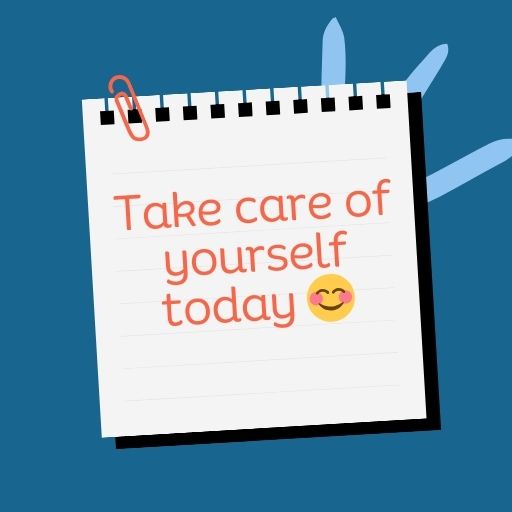
The Importance of Self-Care and How to Incorporate It into Your Daily Routine
In a world that often feels fast-paced and overwhelming, it’s easy to put our own needs on the back burner. However, self-care is not a luxury—it’s essential for maintaining our mental and physical well-being. When we take the time to care for ourselves, we can show up better for our families, jobs, and communities. But what exactly is self-care, and how can you make it a consistent part of your routine?
What Is Self-Care?
Self-care refers to the intentional actions you take to maintain your health and happiness. It’s not just about pampering yourself with spa days (though those can help too!); it’s about creating small habits that support your emotional, mental, and physical wellness. The goal is to reduce stress, recharge your energy, and improve your overall quality of life.
Why Self-Care Is Important
Incorporating self-care into your daily routine can have a positive impact on both your mind and body. Here are just a few benefits:
- Reduces stress: Daily self-care helps lower stress levels and keeps you feeling more balanced, especially when life gets hectic.
- Improves mental health: Taking time for yourself can reduce symptoms of anxiety and depression, boost your mood, and enhance your overall sense of well-being.
- Boosts physical health: Simple self-care activities, such as getting enough sleep or staying hydrated, contribute to your physical health and can help prevent illness.
- Increases productivity: When you take care of yourself, you have more energy and focus, which leads to greater productivity at work and in your personal life.
- Enhances relationships: When you’re well-rested and emotionally balanced, it’s easier to nurture healthy relationships with the people around you.
Self-Care Practices to Incorporate into Your Routine
The best part about self-care is that it doesn’t have to be time-consuming or complicated. Here are some simple, effective practices you can incorporate into your daily life:
1. Mindful Mornings
Starting your day with intention can set a positive tone for everything that follows. Try these quick morning self-care activities:
- Stretch or do light yoga: This can get your blood flowing and ease any tension from sleep.
- Meditate for 5-10 minutes: Even a short meditation can help clear your mind and center your thoughts before the day begins.
- Enjoy a peaceful breakfast: Rather than rushing through your meal, take time to enjoy a nourishing breakfast with minimal distractions.
2. Regular Movement
Exercise is one of the best ways to care for your body and mind. It boosts endorphins (your brain’s feel-good chemicals) and reduces stress. Aim for at least 30 minutes of movement most days. This could be:
- A walk around your neighborhood
- A home workout or dance class
- Stretching or gentle yoga during breaks
3. Stay Hydrated and Eat Well
Fueling your body with healthy foods and plenty of water is a form of self-care that’s easy to overlook. Keep a water bottle nearby to remind yourself to drink throughout the day, and make a conscious effort to include fresh fruits, vegetables, and whole grains in your meals. Not sure how much you should be drinking each day? Check out my blog Quenching the Body’s Thirst…
4. Take Digital Breaks
In our technology-driven world, it’s easy to feel glued to our screens. Taking intentional breaks from devices can improve your focus, reduce stress, and protect your mental health. Set boundaries, such as:
- Turning off notifications during meals
- Scheduling tech-free times, like the first or last hour of your day
- Taking a quick walk outside instead of scrolling through social media
- Try a 24 Hour Tech Break. I’ve been implementing this strategy since 2021, and I’ll never stop.
5. Pamper Your Skin
Caring for your skin can be a wonderful form of self-care, especially when you take a few moments to make it special. Whether it’s a simple face mask, a soothing bath, or applying your favorite moisturizer, these small moments of pampering can leave you feeling refreshed and renewed. Try products that are gentle on your skin, like those from Lemongrass Spa, which offer natural and organic ingredients to nourish your skin without harsh chemicals.
6. Prioritize Sleep
Getting enough rest is one of the most powerful things you can do for your well-being. Aim for 7-9 hours of sleep each night, and establish a relaxing bedtime routine to help you wind down. This might include:
- Turning off electronics at least 30 minutes before bed
- Reading a calming book or journaling
- Using a lavender-scented pillow spray to create a relaxing atmosphere
- Try listening to Brown Noise at night
7. Practice Gratitude
Taking a few moments each day to reflect on the positives can do wonders for your mental health. Start a gratitude journal where you write down three things you’re thankful for each day, or simply take a few quiet moments to reflect. This practice can shift your mindset and help you appreciate the good things in life.
Making Self-Care a Habit
While incorporating these practices into your daily routine may sound great, the challenge often lies in consistency. Here are some tips to help make self-care a regular part of your life:
- Start small: Don’t overwhelm yourself by trying to do everything at once. Pick one or two habits to start with, and gradually add more over time.
- Schedule it: Treat self-care like any other important appointment. Block out time for it on your calendar, and commit to honoring that time.
- Be flexible: Life happens, and some days will be busier than others. Don’t stress if you can’t get in your full routine every day. Even a few minutes of self-care can make a difference.
Final Thoughts
Self-care is an essential part of maintaining balance in your life, and it doesn’t have to be complicated. Whether it’s a few minutes of stretching in the morning, enjoying a soothing skincare routine, or practicing gratitude at night, small acts of self-care can add up to significant improvements in your well-being. Make self-care a priority in your daily routine, and you’ll likely notice a positive shift in your mood, energy, and overall quality of life.
Remember, taking care of yourself isn’t selfish—it’s necessary.

Leave a Reply